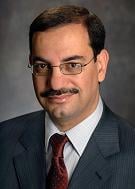Bio-Inspired Cognition and Networks
Self-organized and complex patterns of behavior are common in many biological networks, where no single agent is in command and yet forms of self-organization and decentralized intelligence are evident. Examples include fish joining together in schools, birds flying in formation, bees swarming towards a new hive, and bacteria diffusing towards a nutrient source. While each individual agent in these biological networks is not capable of complex behavior, it is the combined coordination among multiple agents that leads to the manifestation of sophisticated order at the network level. The study of these phenomena opens up opportunities for collaborative research across several domains including economics, life sciences, biology, and information processing, in order to address and clarify several relevant questions such as: (a) how and why organized behavior arises at the group level from interactions among agents without central control? (b) What communication topologies enable the emergence of order at the higher level from interactions at the lower level? (c) How is information quantized during the diffusion of knowledge through the network? And (d) how does mobility influence the learning abilities of the agents and the network. Several disciplines are concerned in elucidating different aspects of these questions including evolutionary biology, animal behavior studies, physical biology, and even computer graphics. In the realm of signal processing, these questions motivate the need to study and develop decentralized strategies for information processing that are able to endow networks with real-time adaptation and learning abilities. Progress in this direction can help understand and reverse-engineer the decentralized intelligence and collective behavior that are commonly observed in socio, economic, and biological networks. Effective distributed information processing schemes can help provide effective guides to designing powerful cognitive networks in engineered systems. This presentation examines several patterns of decentralized intelligence in biological networks, and describes adaptation and learning strategies that are able to model and reproduce these kinds of behavior.

Ali Sayed
Professor of Electrical Engineering, University of California Los Angeles on September 23, 2011 at 1:00 PM in Engineering Building II, Room 1230
A. H. Sayed is Professor of Electrical Engineering at the University of California, Los Angeles, and Principal Investigator of the UCLA Adaptive Systems Laboratory (www.ee.ucla.edu/asl). He has published widely in the areas of adaptation and learning with over 350 articles and 5 books. His research interests span several fields including adaptive and cognitive networks, cooperative behavior, bio-inspired processing, distributed processing, and statistical signal processing.
The Department of Electrical and Computer Engineering hosts a regularly scheduled seminar series with preeminent and leading reseachers in the US and the world, to help promote North Carolina as a center of innovation and knowledge and to ensure safeguarding its place of leading research.
